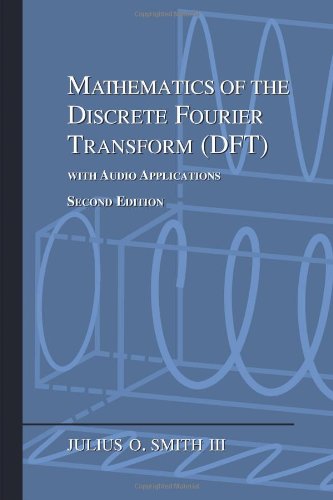Existence of the Fourier Transform
Conditions for the existence of the Fourier transform are
complicated to state in general [12], but it is sufficient
for ![]() to be absolutely integrable, i.e.,
to be absolutely integrable, i.e.,


There is never a question of existence, of course, for Fourier transforms of real-world signals encountered in practice. However, idealized signals, such as sinusoids that go on forever in time, do pose normalization difficulties. In practical engineering analysis, these difficulties are resolved using Dirac's ``generalized functions'' such as the impulse (also called the delta function) [38].
Next Section:
The Continuous-Time Impulse
Previous Section:
Number Theoretic Transform



















